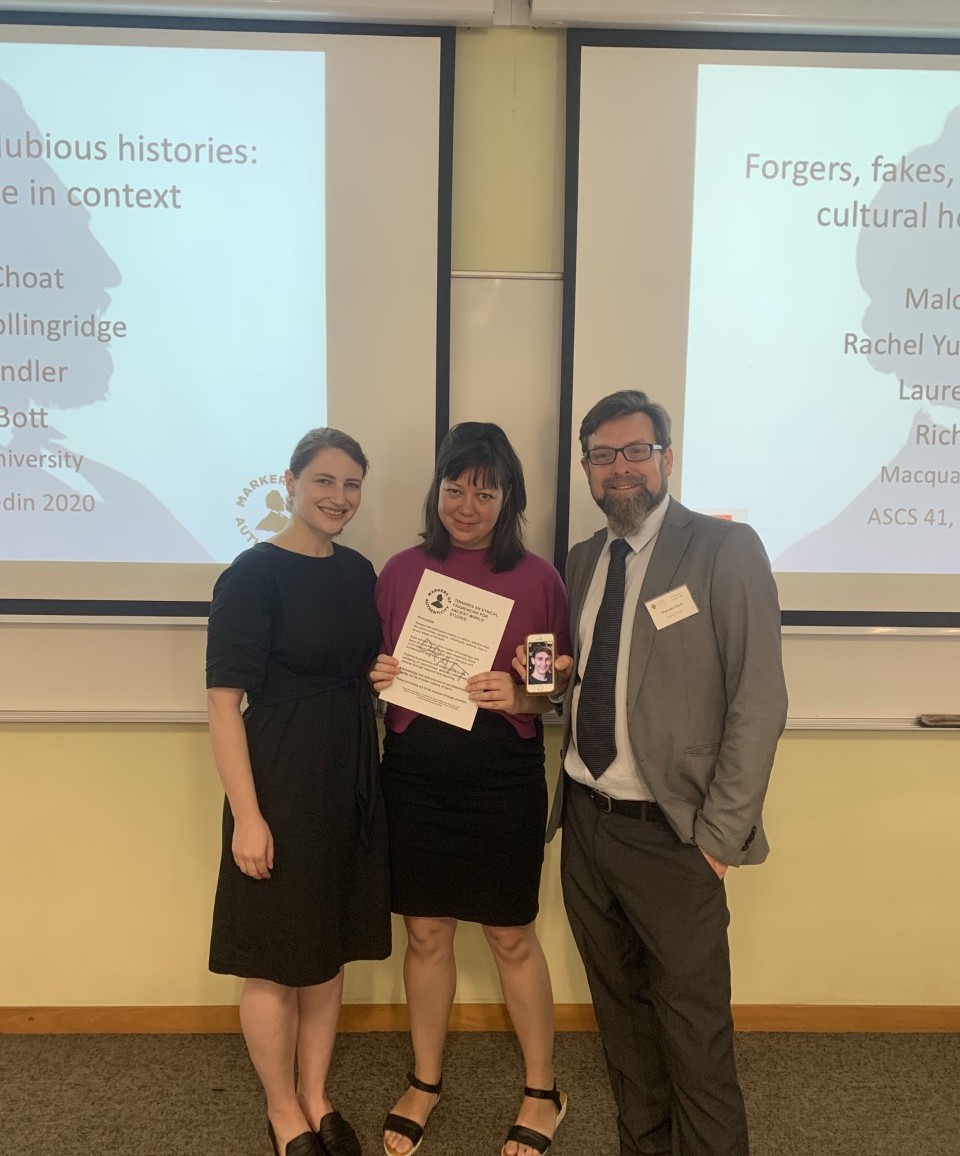PhD Candidate Lauren Dundler Featured in The Guardian

Macquarie University PhD candidate Lauren Dundler has been featured in an article in The Guardian regarding illicit metal-detecting in the UK. The article ‘Stealing Britain’s history: when metal detectorists go rogue’ by Sirin Kale, published on Tuesday 2nd June 2020, reports on the impact of ‘nighthawking’, the practice of looting historic sites with the use of metal detectors for the purpose of illegally keeping or selling significant artefacts. Stolen artefacts can find their way onto online marketplaces and, as Lauren discusses in the article, such platforms are often poorly regulated and have done little to combat the illegal trade of antiquities.
Through her doctoral research, Lauren is emerging as an authority on heritage crime in online spaces and she was sought out by the author of the article to provide comment on this issue. Lauren’s thesis, supervised by CACHE member Professor Malcolm Choat, focuses on the internet market for antiquities, which is played out not only on the websites of private dealers and auction houses but also on major platforms like eBay, Facebook, and other social media. While many of the objects that appear in internet markets were acquired legally in accordance with the various cultural property laws that exist around the world, there are still serious consequences to the commercialisation of historical artefacts and the ease in which they can be bought and sold online. “We need to shift away from the idea that ‘legal’ means ‘harmless’,” says Lauren. Creating a demand for antiquities can encourage illicit and even dangerous behaviour on the part of sellers, including looting from historical sites. Lauren sees this as a human rights issue: “looting directly deprives people of their heritage and identity”. Many artefacts for sale lack any information about their provenance and they will often enter into private collections, making them unavailable for further study. The move to online dealing would seem to allow for more accessibility and accountability, but this is not always the case, as revealed through Lauren’s study of the language and tactics used by sellers. “The online market is still secretive and withholds information from the public. The market deceives you into thinking that it is more transparent than it actually is,” says Lauren.
The way forward is not only to identify harmful behaviours but to offer solutions. “The goal of my thesis is to design a regulatory approach to this market that encourages ethical behaviour and ideally causes people to reconsider their approach to buying antiquities,” says Lauren. But the work doesn’t stop there: the problems of the online antiquities market expose additional issues, such as other illicit markets that deal in human remains and wildlife contraband, the workings of internet crime more broadly, and the ethical responsibilities of social media giants. “This area of research has very tangible applications,” Lauren says.
Lauren’s inclusion in The Guardian article is a testament to the importance of her work, and we wish her the best for the final year of her doctorate!
For more on Lauren’s research, you can follow @laurendundler on Twitter. She is also a contributor to Markers of Authenticity, a Macquarie University research network that explores cross-disciplinary perspectives on authenticity in the past and present human experience.
Image:
Lauren Dundler (left), with Dr Rachel Yuen-Collingridge (centre) and supervisor Professor Malcolm Choat (right), after presenting ‘The value of authenticity and authority in the internet markets for antiquities – questions of ethical engagement and legal obligations’ at the Australasian Society for Classical Studies 2020 Annual Conference, University of Otago.
